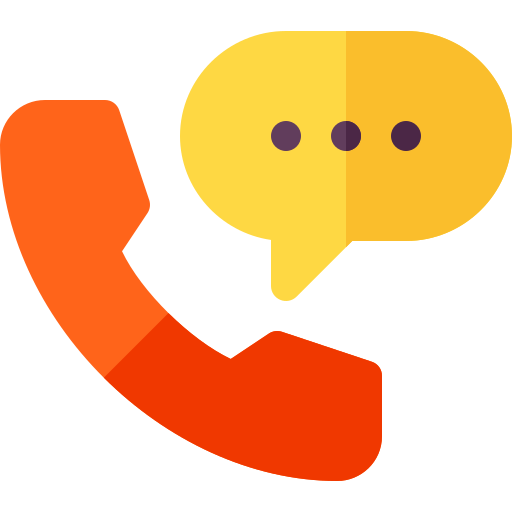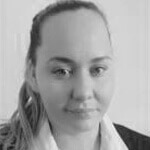
1800 934 265
AQF Level
Course Duration
Mode of Delivery
The importance of early childhood care and education in Australia is evident. Not only do these programs provide children with a strong foundation, but they also have a positive impact on the economy. Pursue a CHC50121 – Diploma in Early Childhood Education and Care to upskill your role as an educator if you are working in regulated children’s education and care services in Australia. The course will help you with an overall development in areas like:
After the successful completion of the course, you will imbibe with skills like:
There is a huge requirement of educators in early childhood education and care in Australia in the coming years.
IHNA (Institute of Health and Nursing Australia) is trusted by more than 30,000+ students and has been committed to providing excellence in education and training to meet the needs of the community since 2007.
The blended delivery mode consists of online theory with face-to-face simulation-based training and professional experience placement (PEP) at relevant workplaces.
After the successful completion of the program the candidates may gain employment as Practice Managers in various health care settings.
Further, the candidates may pursue a three-year bachelor’s degree in education or teaching in Early Childhood or Primary school, they can opt for master’s and then PHD. Thereafter the candidate can work as:
15 units are required for award of this qualification including:
CHCPRP003
Reflect on and improve own professional practice
CHCECE042
Foster holistic early Childhood learning, development and wellbeing
CHCECE047
Analyse information to inform learning
CHCECE050
Work in partnership with children’s families
CHCECE048
Plan and implement Children’s education and care curriculum
CHCECE043
Nurture creativity in Children
CHCECE049
Embed environmental responsibility in service operation
CHCECE046
Implement strategies for the inclusion of all children
CHCECE045
Foster positive and respectful interactions and behavior in children
CHCECE041
Maintain a safe and healthy environment for children
CHCECE044
Facilitate compliance in a children’s education and care service
BSBTWK502
Manage Team effectiveness
CHCECE057
Use collaborative practices to uphold child protection principles
CHCMGT003
Lead the teamwork
BSBHRM413
Support the learning and development of teams and individuals
Student Must hold a CHC50121 – Certificate III in Early Childhood Education and Care or CHC30113 – Certificate III in Early Childhood Education and Care qualification.
Student must possess basic computer skills which includes covering the most common usages of a computer, including managing computer files, word processing, using spreadsheets and databases; creating presentations; finding information and communicating using computers; and being aware of social and ethical implications of Internet use.
*Additional costs may be incurred depending on the fees charged by the providers to complete these requirements
Graduates may progress to higher level qualifications within and/or across the health care sector.
There is no applicable pathway to this qualification.
Course Fees for Full-Fee Paying Students
Was $3,499 Now $2,499*
*Save $1,000 on this course with IHNA Online!
IHNA Online has defined entry requirements for courses under its mandate, as outlined by its ‘Application and Enrolment Procedure for Courses,’ to ensure that students meet industry standards.
step 1
Application: Submit your online application by clicking “Enrol Now”.
step 2
LLN: You are required to complete an online LLN test.
step 3
PTR: Once you’ve met IHNA’s eligibility criteria, you will be contacted by an admission consultant, followed by a pre-training review
step 4
Fees: Login credentials, user guide, conditional offer letter and invoice will be sent to your email, and pay your tuition fees.
step 5
Confirmation of Admission: We will issue a confirmation of admission once the enrolment fee has been received.
step 6
Orientation: We will send you the details of the online orientation.
step 7
Access: Once the orientation is completed, explore the learning resources and start learning on your learning platform.
* Aboriginal and Torres Strait Islanders’ students are encouraged to apply.
Students must submit a portfolio of past evidence, which may include third-party assessments, and partaking in an interview procedure. They can further have their prior learning and work experiences acknowledged in this certification. A practical demonstration of the portfolio presented by the students may also be used to evaluate student’s competencies and expertise, which will give the educators a clear idea. In addition to this mutual recognition and credit transfer allow students to have their previous formal training recognized.
Credit Transfer is only available for Australian qualifications when a student has completed the units considered necessary for a qualification at another Registered Training Organization.
Any other questions in your mind – let us give you some more clarity with the following FAQs – check below:
1. What is the Minimum requirement to become an early childhood educator?
To become an early childhood educator the starting requirement will be to complete a 4-years Bachelor of Education (Early Childhood) or similar Course from a recognised institution. On the other hand, you also have a choice to complete a 2 to 3 years Diploma of Early Childhood Education. For more details you can check @ Diploma of Early Childhood Education and Care
2. What do you study in Diploma of early childhood education and care?
You learn a plethora of concepts and skills in a certified childhood educator course some of the skills include
3. How much is early childhood educators get paid in Australia?
Though there is no fixed numbers but the average educators in Australia is paid around $60,000 per year.
What is scope for Diploma in early childhood education?
After the successful completion of the program the candidates may gain employment in various roles such as:
01

Adam Gardoll
The staff in my opinion are all supportive and friendly and I am enjoying my studies here.
02

Ashley Hartnett
The facilities are continually improving and the support I have acquired is unlike any other school.
03

Baby Aurora Trijo
The dedication, support and motivation of each staff member is great and enables students like myself to achieve their dream.
04

Christian Pascaran
The Staff/educators were very helpful to students when it came to addressing our problems.
05

Jismy Ouseph
I am really thankful to IHNA which gave me the confident and exposure to my nursing career.
It is always a pleasure to listen to the stories our students say about us! Take a sneak peak at the inspiring stories of our students, which often leave us in tears of intense happiness and give us strength and hope